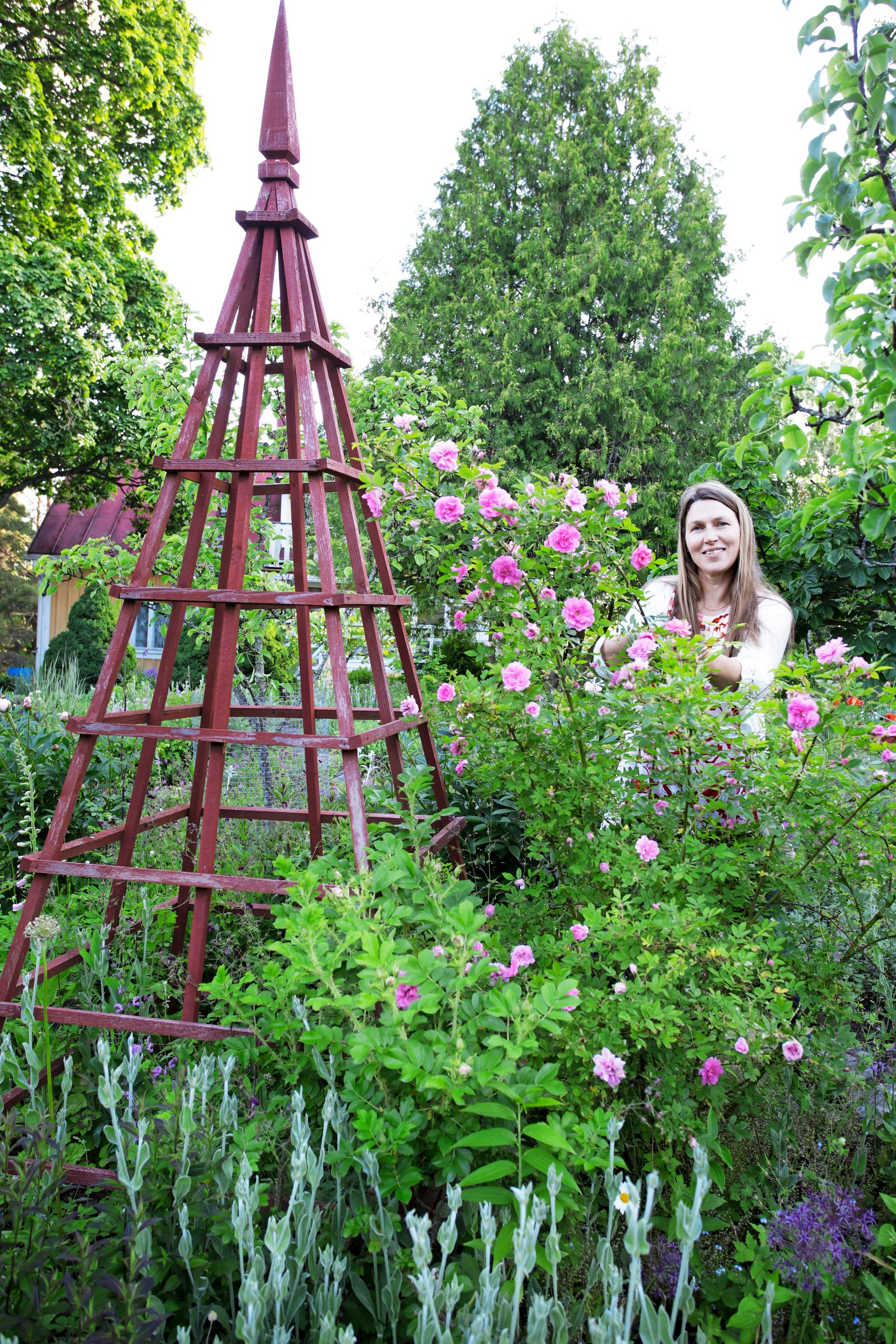
Gardener Chatarina Munck’s expansive garden is abundant, relaxed, and stylish: “There’s always room for new ideas”
Norrgård Farm in Kirkkonummi has been in Chatarina’s husband Kim Lindholm’s family since the 1930s. After trying different approaches, Chatarina discovered a garden style that perfectly suits the large property.

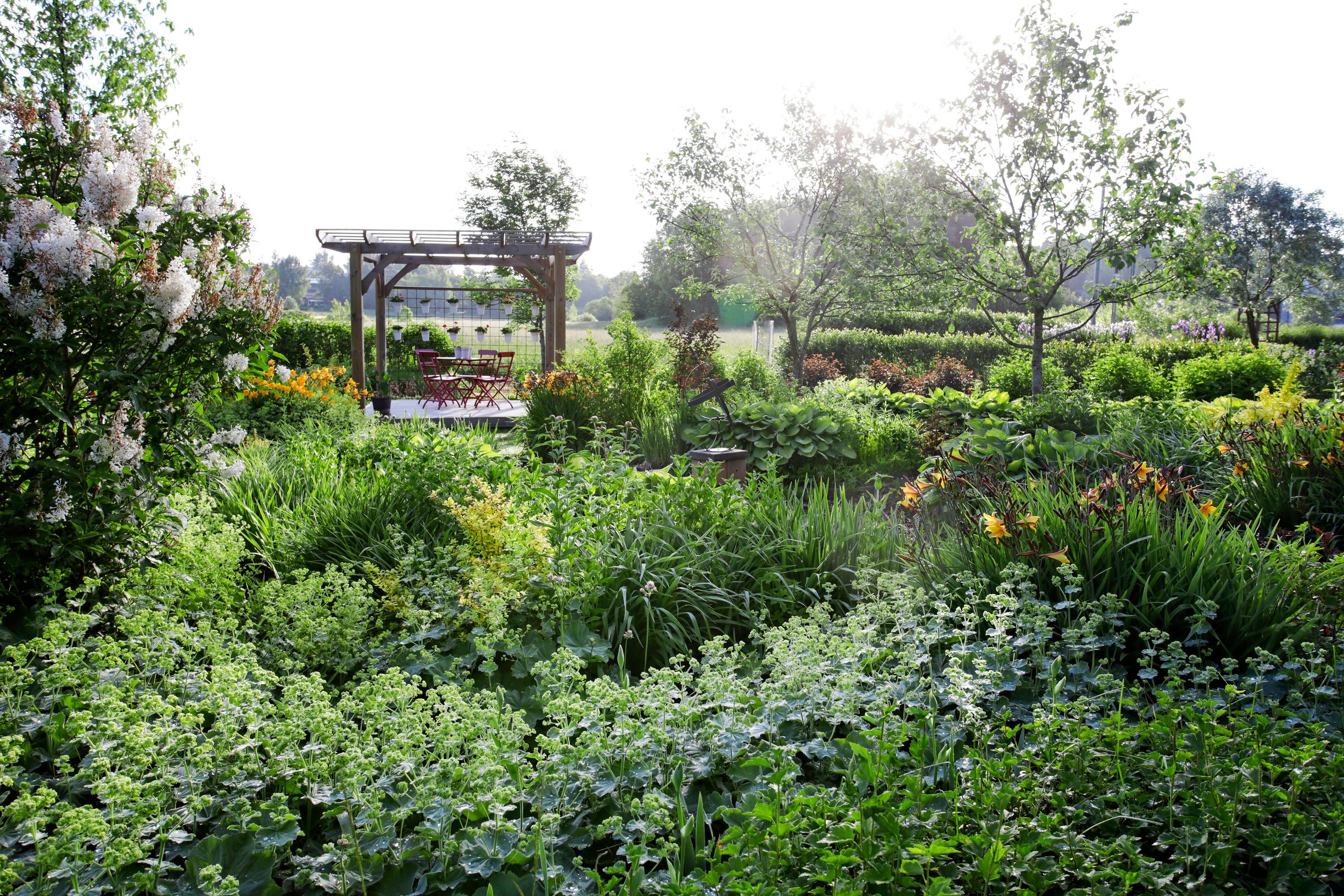
In spring, gardener Chatarina Munck’s family never holds dinner parties for friends, because every surface in the house is covered by seedling pots for weeks on end.
“I grow quite a few perennials from seed [in Finnish] and I still need more space for the seedlings. I’m dreaming of a bigger greenhouse,” she sighs.
The current greenhouse is as sweet as a sugar cookie, inside and out, but it’s too small for large-scale growing. Chatarina’s husband Kim Lindholm designed and built it using old windowpanes on top of the unfinished foundations of a decades-old root cellar. The panes were kept as mementos of the greenhouses that once stood on the property, where Chatarina’s parents-in-law once cultivated tomatoes for sale.

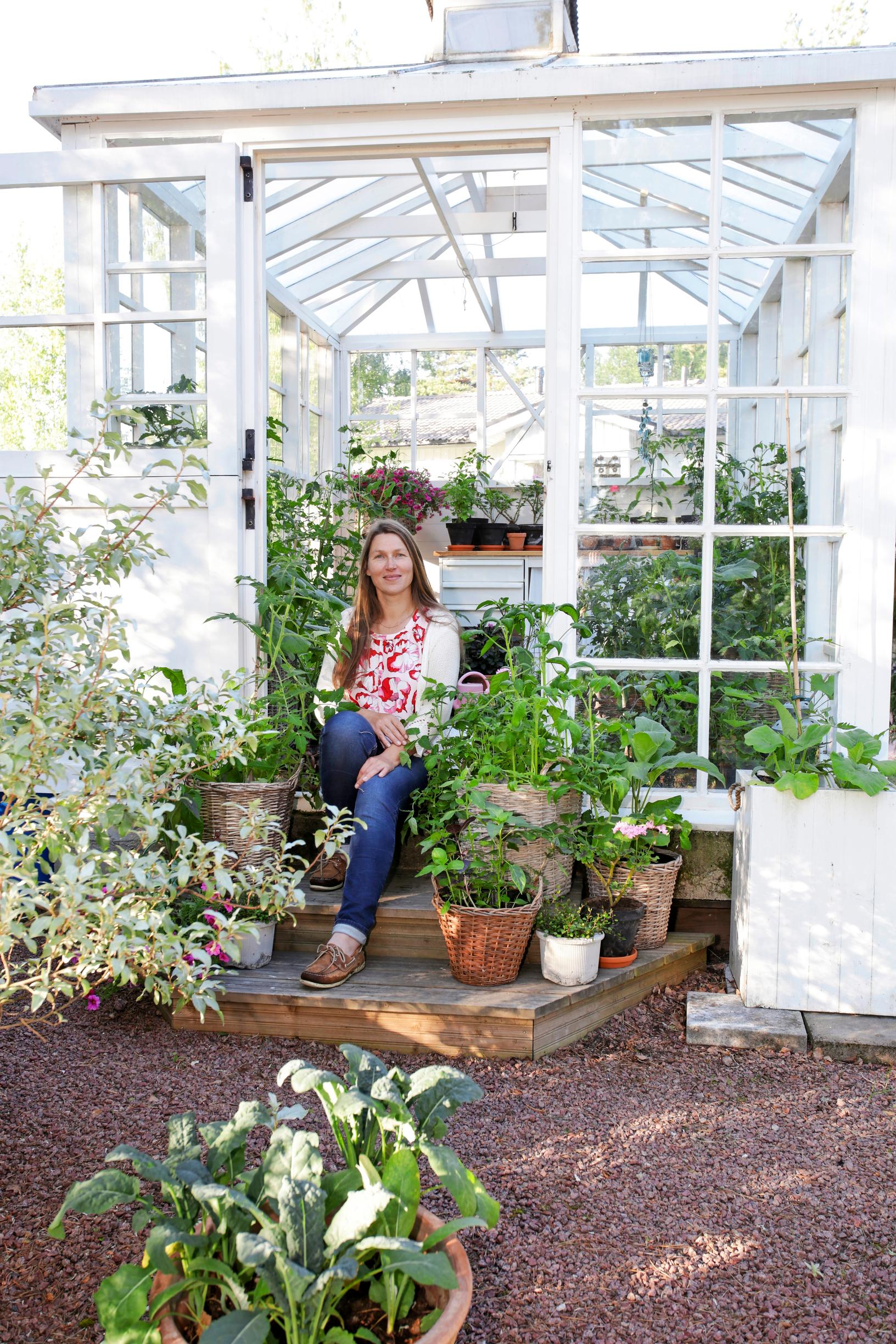

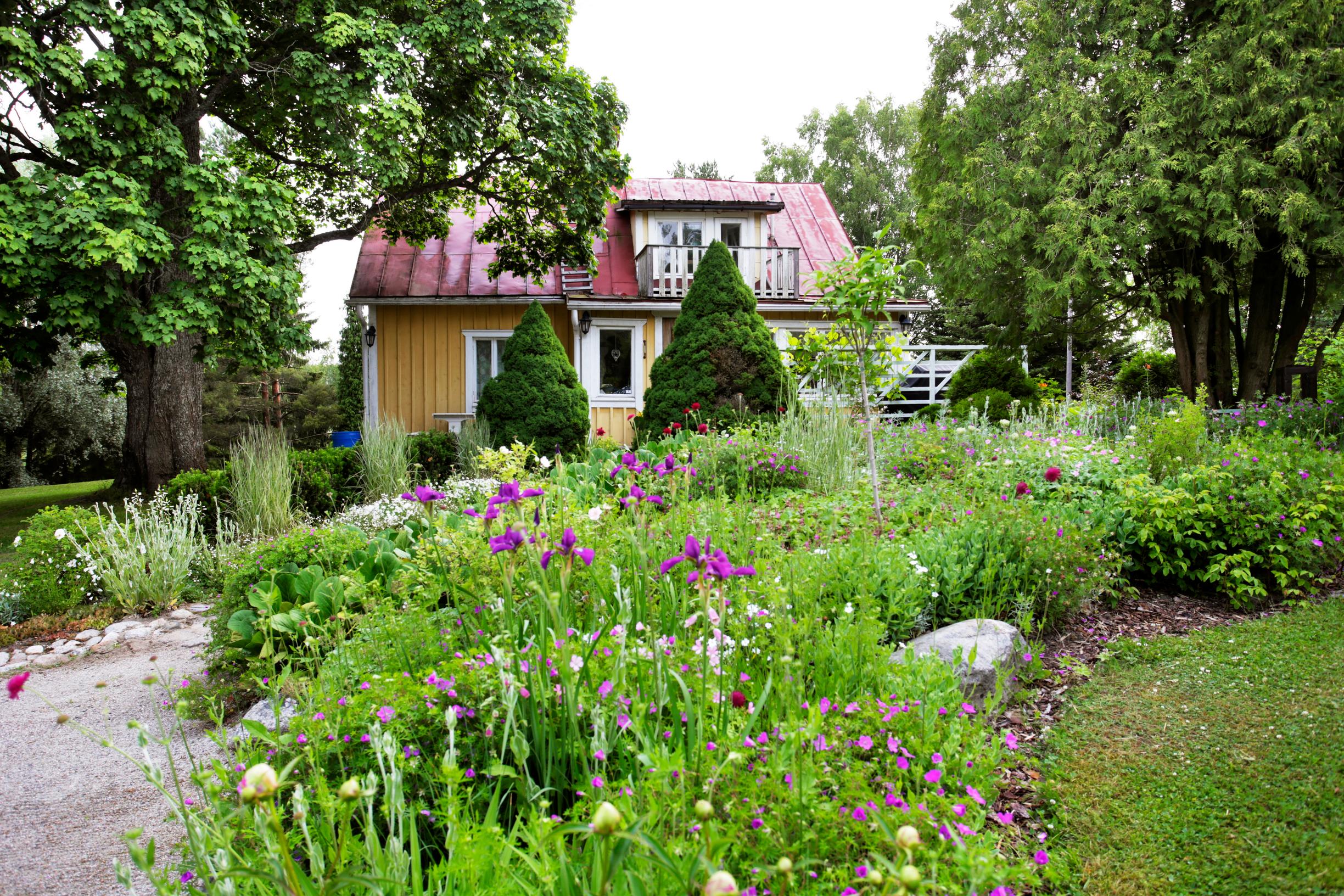
Norrgård Farm in Kirkkonummi has been in Kim’s family ever since his grandfather bought it in the 1930s. However, from 1944 until 1956, the property was leased to the Soviet Union as a closed military base, like the rest of Kirkkonummi’s Porkkala area. When the family finally reclaimed it, the entire yard had been dug up and churned. Trenches were excavated, and all kinds of debris were left behind.
“Kim’s parents had a tough time filling in all the holes and bringing in field soil. They set up large patches of potatoes and strawberries in the lower yard.”
When Chatarina and Kim moved from an apartment to the family homestead with their two sons 15 years ago, the lower yard was simply grass. It continued to sway in the wind for years afterward, as Chatarina—newly passionate about gardening—first focused on creating flower beds near the house in the upper yard.
There are always new plants to discover
The yellow, blue, and white-striped house flag of Swedish-speaking Uusimaa flutters above the harmonious perennial plantings, inspired by the English cottage garden style [in Finnish]. The plump peony buds are about to burst open, while the Finnish ‘Ilo’ shrub rose, chives, and irises bloom in abundance. The pastel-hued color palette stretches from the brownish-apricot of mulleins all the way to pink, white, and pale lavender. Purple flowers guide the eye from one area to the next.

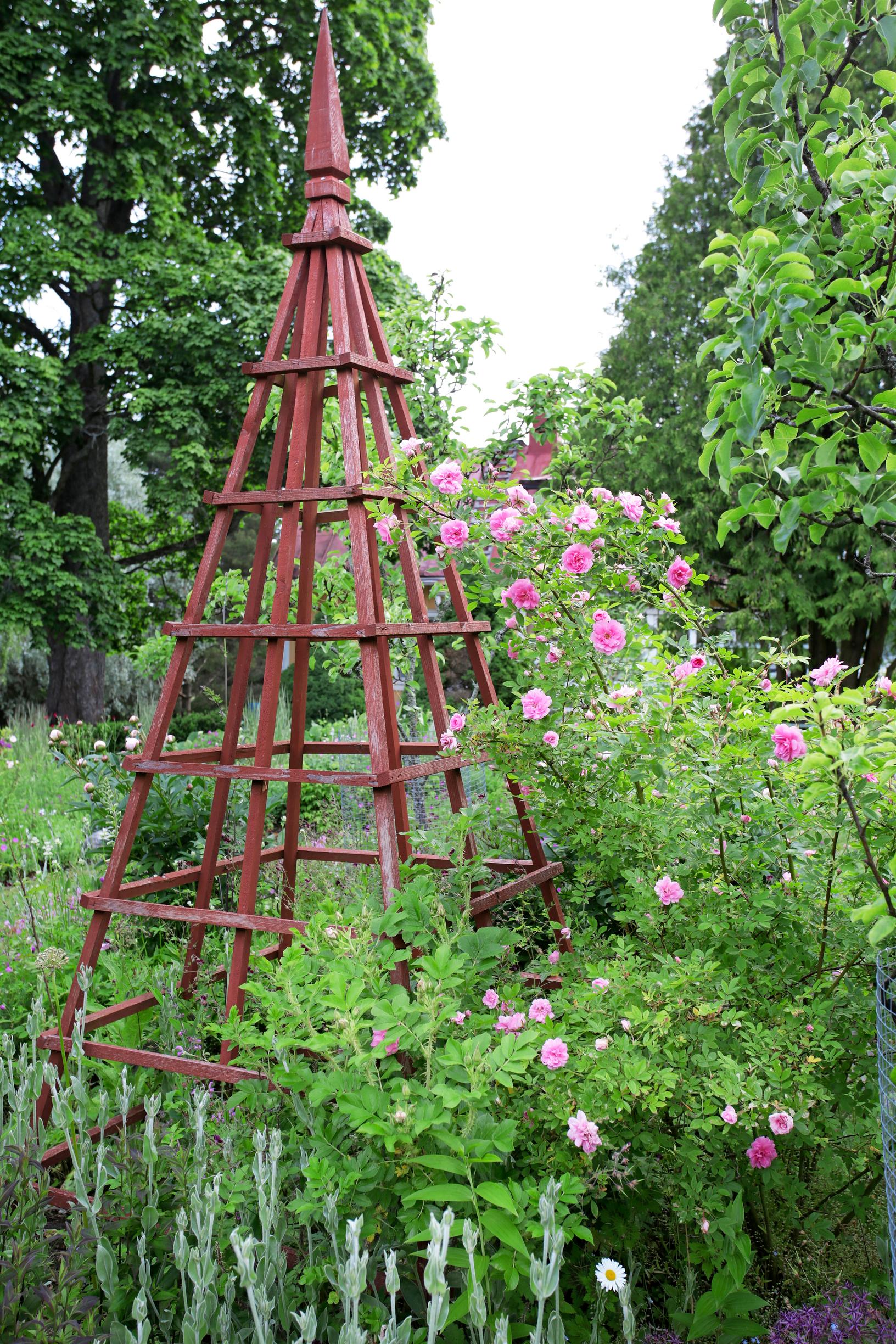

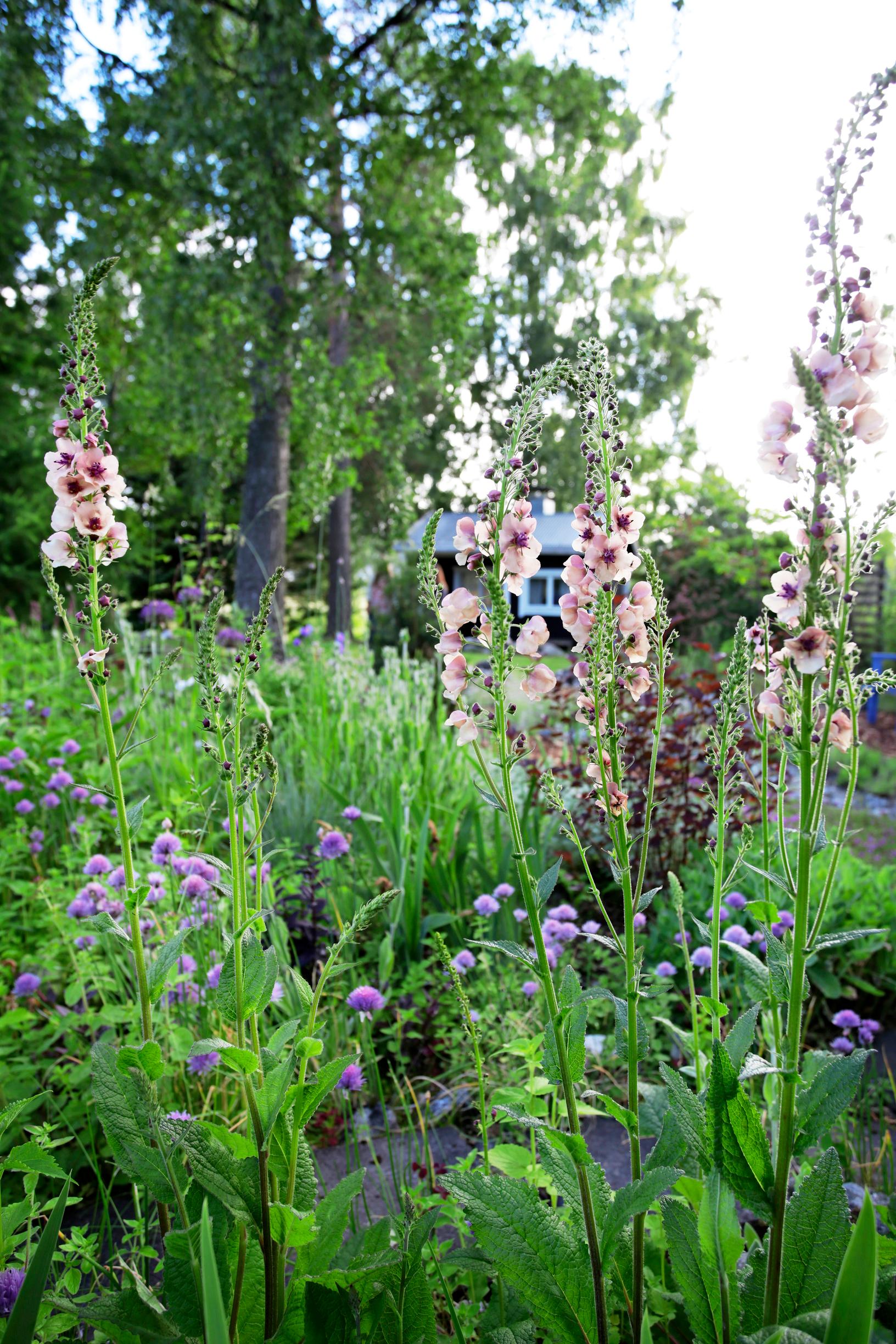
This one-hectare garden has expanded piece by piece. Chatarina has already revamped many areas multiple times. For instance, the bed under the large birch, where pussytoes grow, has been dug up and redone at least three times.
The bright dandelion-yellow daylilies [in Finnish]is what drove Chatarina to eventually extend the garden all the way to the back of the property.
“Yellow has always been a bit tricky for me, but at the same time, I find it nearly impossible to throw away any plant, even those with yellow blooms. My solution was to create a new section far enough from the house so I wouldn’t have to look at the daylilies all the time,” Chatarina says with a laugh.
Right now, the mostly yellow area in the lower part of the garden, by the pergola Kim built, is one of her favorites. For Chatarina, this is what gardening is all about—there are always new plants, styles, or ideas to spark your interest. She recalls being alternately excited about all-white flower groupings, English gardens, unusually bold foliage shapes, conifers [in Finnish]and ornamental grasses.

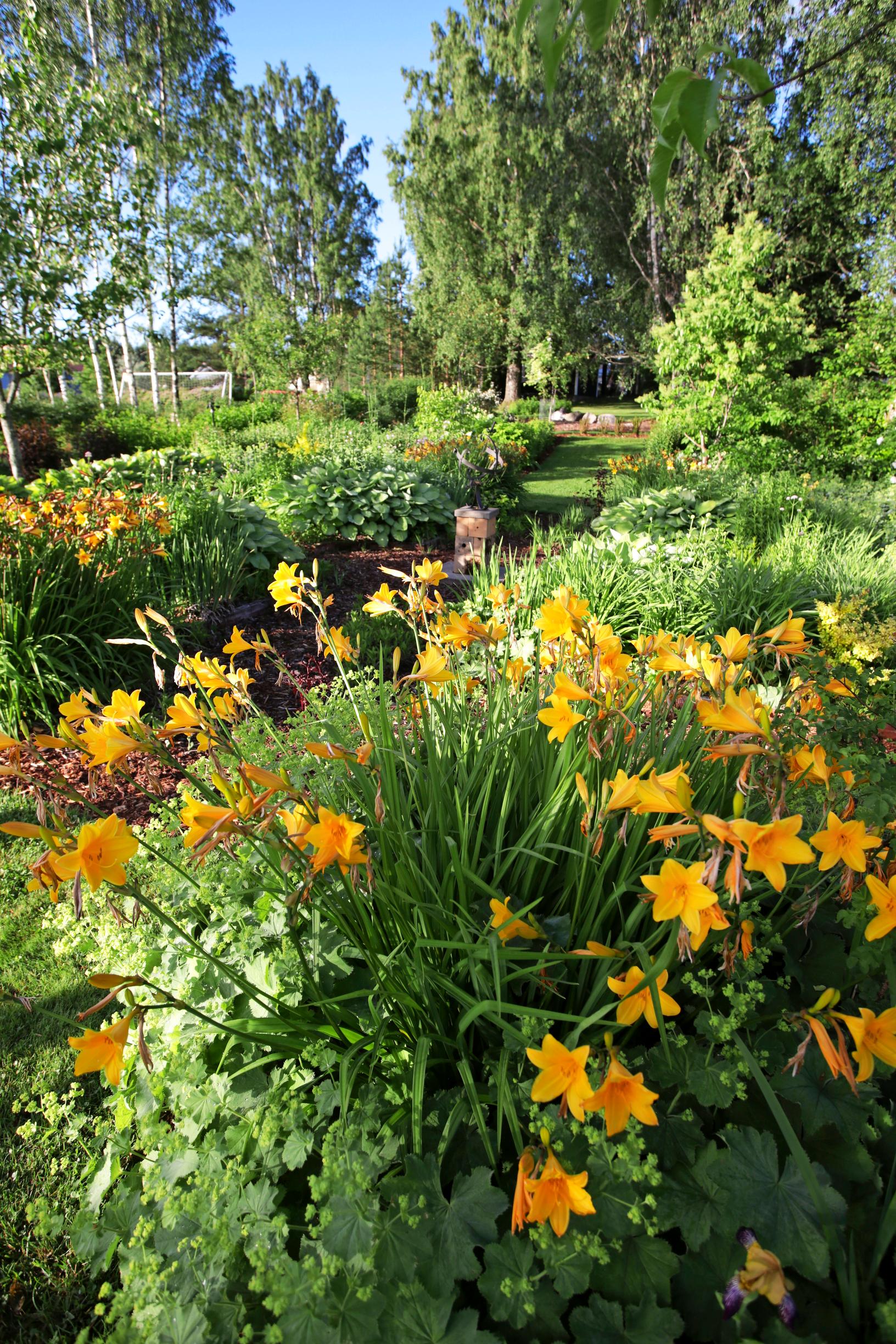

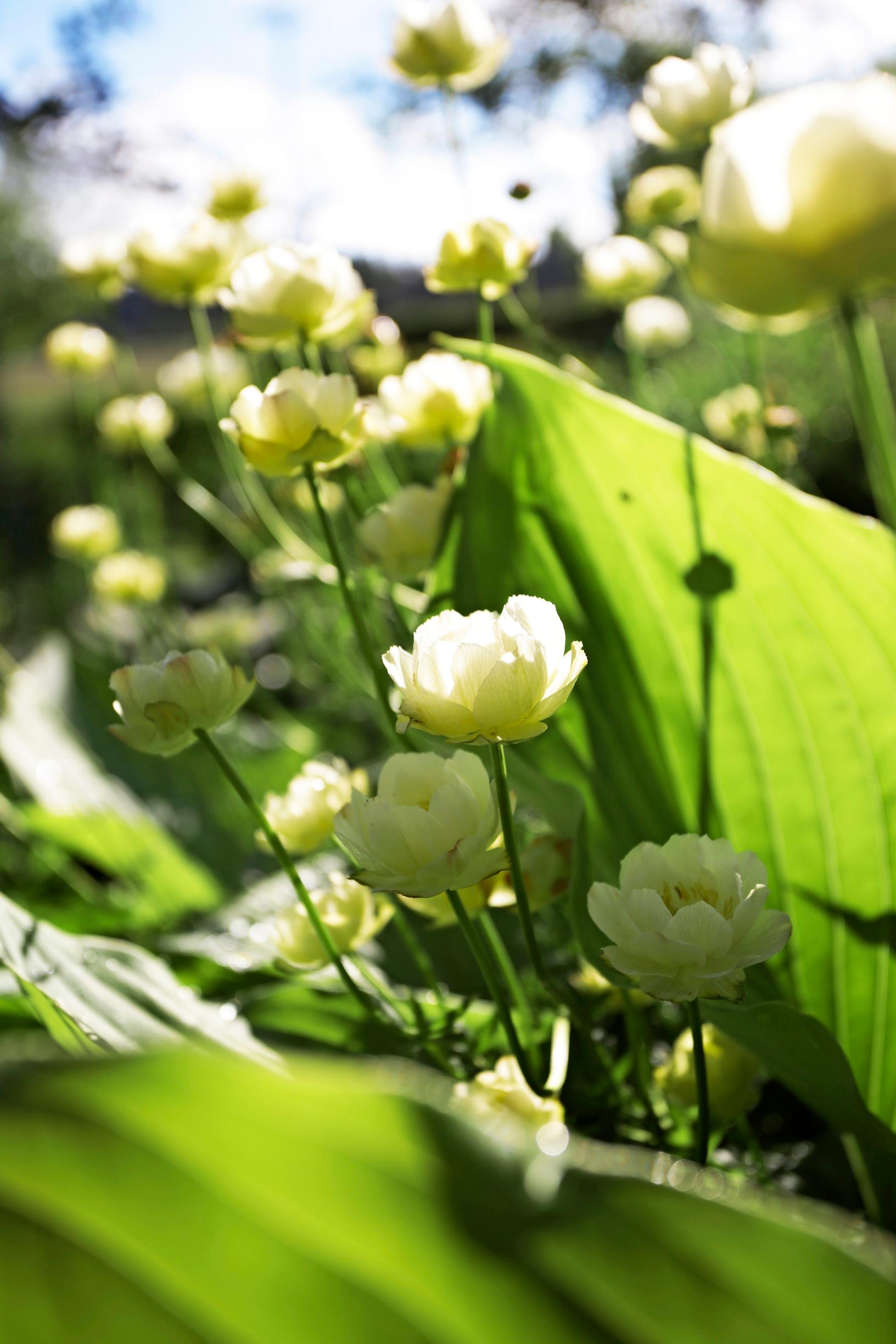
Expansive views and large-scale lines
Over the years, Chatarina’s attitude toward plants and garden design has evolved at least as much as Norrgård’s yard.
“In some ways, I’ve become calmer about all sorts of things. I used to panic if I saw aphids on my plants. Now I know the birds will eat them soon enough. Lately, I’ve tried to avoid the pesticides I once used, especially for weeds. I’ve realized my own hands are the best tool for removing them.”

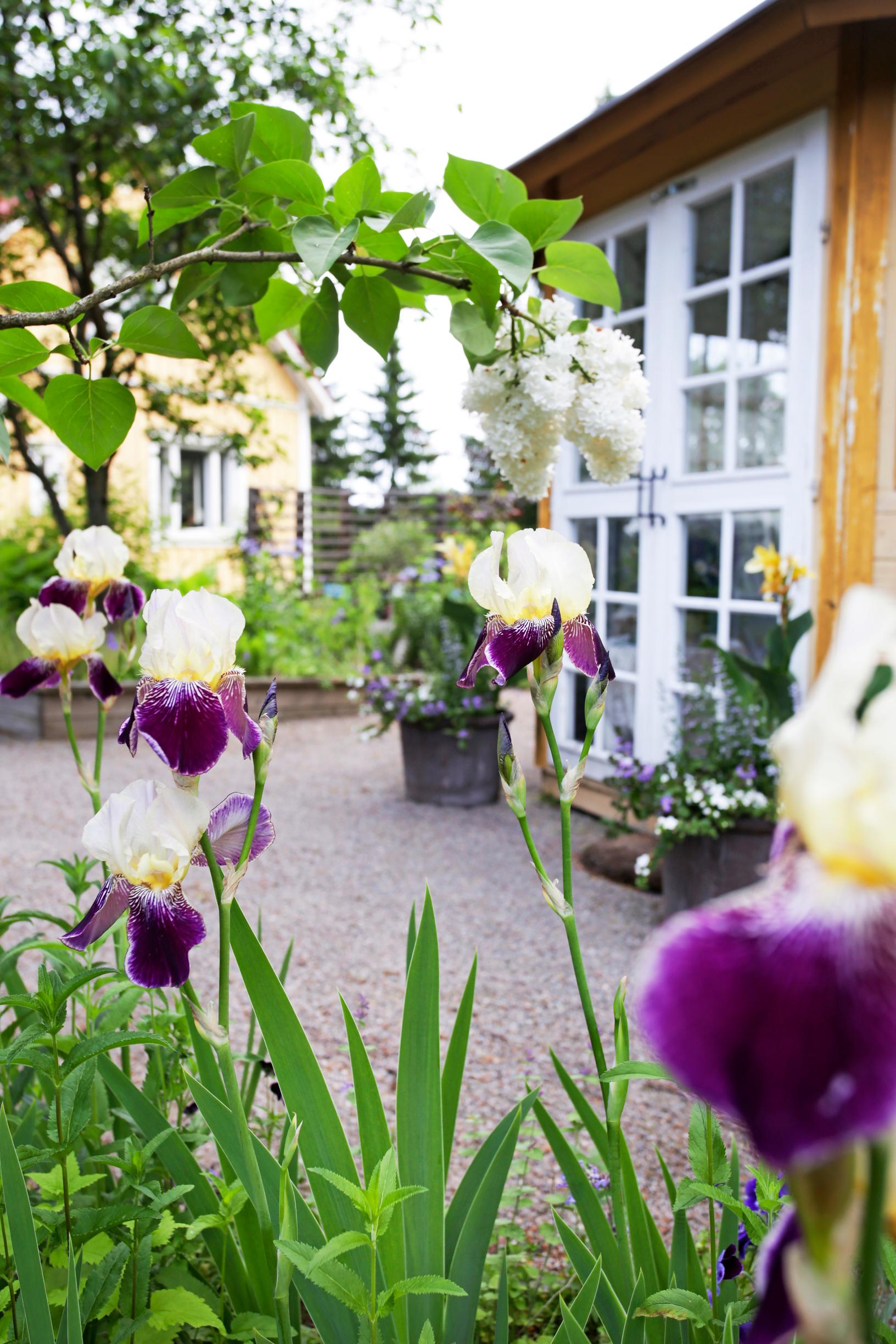

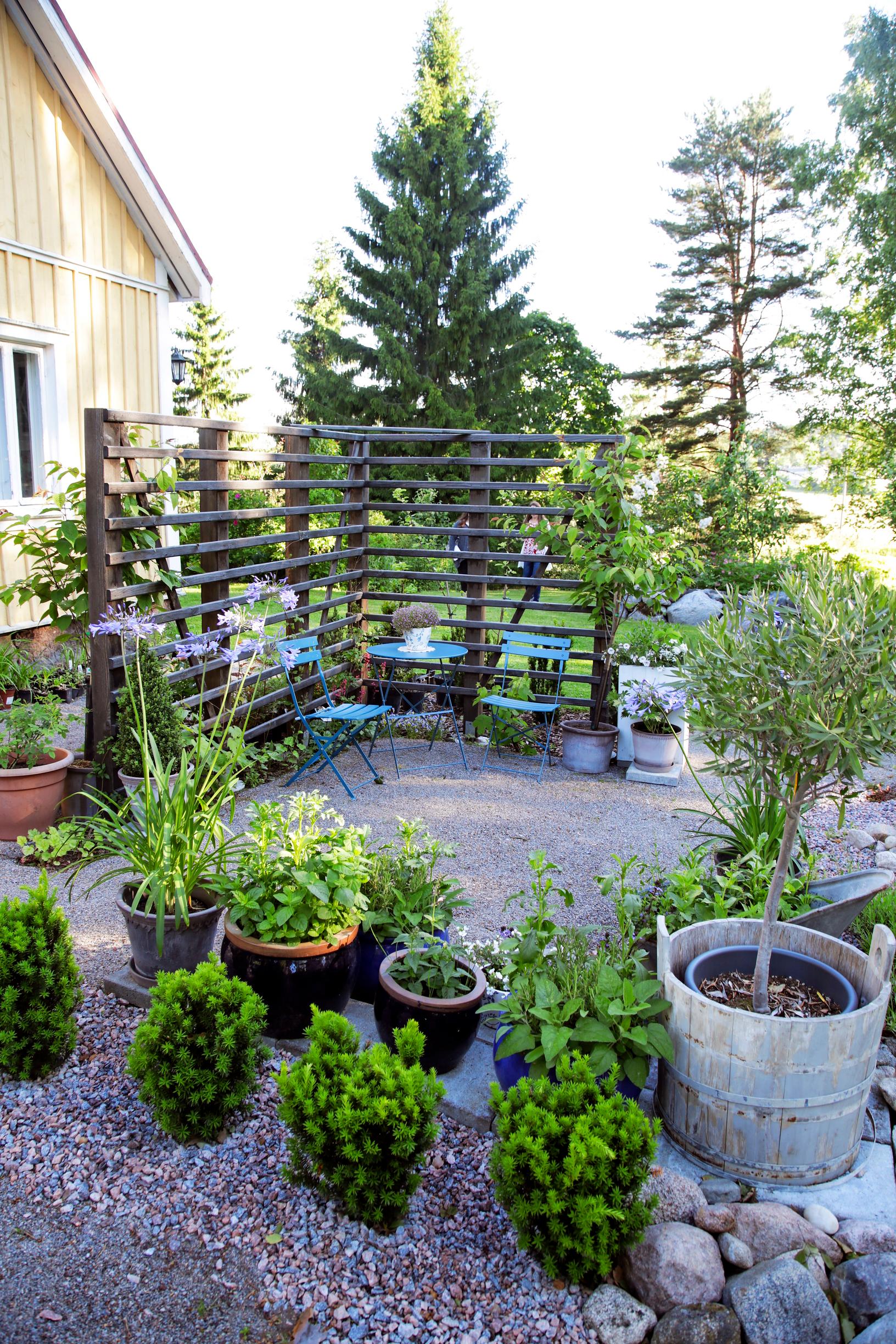
Chatarina still struggles to feel kindly toward the roe deer that come regularly—especially when they nibble on the buds of her white lilies, for which she’s waited three years to bloom, or when a buck scrapes ugly marks into a fir trunk with its antlers. Because of the roe deer, some of the garden’s plants remain netted year-round.
In the first gardening book she bought, Chatarina read about a minimalist style that favored either striking specimen plants or broad mass plantings of a single species. But it didn’t suit her own garden at all.
“I soon realized that my style is much more abundant. I want to keep the large, magnificent trees and the old-fashioned garden feel, and create different ‘rooms’ within the garden. My garden idol is the Swedish gardener Hannu Sarenström, whose free and lush style fascinates me. From him, I learned you should just let go. A big garden always has room for new ideas.”
Chatarina can’t imagine anything that wouldn’t fit in her garden now. She even has a garden gnome—a faded, decades-old figure pushing a wheelbarrow and smoking a pipe—that peeks out from under the silver spruce.
Rather than focusing on individual plant groups, Chatarina is now more interested in sweeping views and large-scale designs. She also makes a point of setting aside time to sit and observe her surroundings. As a result, the garden includes many more conifers, shapes, and low hedges.
“Sometimes I wish I’d planted certain trees ten years ago. I also think more carefully about what I highlight and what I hide, and how I guide people’s eyes and footsteps in the garden. The only downside of a big yard is that whenever I create a new planting area, I have to buy 50 plants instead of just five.”
Here’s how to make gardening easier: Chatarina’s tips
- Plant closely together and weed regularly. That way, the garden remains fairly easy to maintain early on, and weeds don’t have time to turn into a big problem.
- Cut off seed pods or wilted blossoms from plants that tend to spread easily.
- Save money on plant purchases by sowing at least some of your perennials from seed. Salvias and anise hyssop are good examples that are easy to grow.
- Help your plants adapt to minimal care. “I don’t water my garden plants at all after their first year, aside from a few roses. I also don’t protect them over winter,” Chatarina says.


